Discover Pool Ionizers: Simplify Maintenance & Reduce Chemicals
May 02th, 2024
May 02th, 2024
Stepping into the realm of pool maintenance can be daunting, particularly when faced with the myriad of chemical options available. Yet, among the sea of solutions, pool ionizers stand out as a beacon of simplicity and efficiency. I remember a time when my weekends were consumed by balancing chemical levels, struggling to find that perfect mix to keep the water pristine without irritating the skin. It wasn't until a friend introduced me to the world of ionization that I discovered a game-changer for pool care.
Pool ionizers use the power of minerals such as copper and silver to effectively sanitize water. Unlike traditional chlorine methods that can leave a strong odor and cause eye irritation, ionizers work by releasing ions that kill bacteria and algae, providing a gentler yet efficient solution. This innovative approach not only reduces the reliance on harsh chemicals but also significantly cuts down on maintenance time.
Through this guide, you will explore the nuances of how pool ionizers operate, the benefits they bring, and how they can transform your swimming experience. Knowledge is power, and by understanding this technology, you can achieve a perfect balance between a sparkling clean pool and a healthy swimming environment. So, whether you're a seasoned pool owner or a newcomer trying to navigate through the options, this guide is crafted to empower you with all the information needed to make an informed decision.

Who wouldn't want a pristine pool without the chemical overload? Pool ionizers present a compelling solution by leveraging the power of copper and silver ions to sanitize water, reducing the need for chlorine by up to 85%. This method not only minimizes the familiar chlorine scent but also diminishes skin and eye irritation, making for a much more pleasant swimming experience. Imagine floating in water that feels silky smooth, leaving your skin and hair feeling fresh, not parched.
The science behind pool ionizers is both fascinating and simple. When water flows through the ionizer’s chamber, a low-voltage current energizes copper and silver electrodes. This process releases positively charged ions into the pool, where they naturally seek out and neutralize negatively charged bacteria and algae. For those longing for a minimal maintenance routine, the ionizer offers the added benefit of extending the lifespan of pool equipment, which often suffers under the harsh effects of chlorine.
A personal story underscores the benefits: my neighbor, tired of the chemical warfare in his pool, installed an ionizer last summer. Not only did his water clarity improve remarkably, but he also noticed fewer trips to the store for chlorine refills. His kids could spend whole afternoons splashing around without complaints of stinging eyes or itchy skin. With the dual action of a pool ionizer and minimal chlorine supplementation, pool care becomes effortlessly efficient, ensuring more time enjoying the water rather than fussing over it.
Sanitizing your pool without the heavy reliance on chemicals is achievable with pool ionizers. This innovative device harnesses the power of science, specifically the properties of copper and silver ions, to maintain clean water while significantly reducing the need for chlorine. I remember a friend marveling at how soft his skin felt after a swim in an ionized pool, a far cry from the dryness he typically experienced in chlorinated waters.
The process is as clever as it is simple. Pool ionizers utilize a low-voltage electrical current to release positively charged ions into the water. These ions, essential warriors in maintaining pool hygiene, actively seek out and destroy harmful bacteria and algae. My neighbor, always wary of her kids’ sensitive skin, found peace of mind in knowing the water was free from the harshness of traditional sanitizers.
Unlike chemical-heavy alternatives, ionizer-treated water is gentle on the skin, eyes, and even your pool equipment. Regular swimmers often report fewer instances of irritation and the unpleasant odor associated with chlorine. There’s also a noticeable reduction in maintenance costs, as the softer water prolongs the lifespan of pool accessories.
Ultimately, while a pool ionizer isn’t a standalone solution and does require some chlorine supplementation, its benefits make it a compelling choice for anyone seeking a more natural swimming environment. The blend of technology and nature creates an inviting atmosphere that many pool owners rave about.
Few elements can boast the legacy and efficacy of copper and silver. These two metals have been trusted allies since ancient times, celebrated for their unique ability to ward off unwanted microorganisms. Copper, a natural enemy of algae, stands ready to halt its growth, while silver, with its antibacterial properties, acts as a vigilant guard against bacteria. Together, they form the backbone of a pool ionizer, offering a sustainable solution that reduces reliance on harsh chemicals.
Incorporating a pool ionizer into your pool care routine not only elevates water quality but transforms the swimming experience. The technology works by releasing copper and silver ions into the water. These ions actively seek out and neutralize negatively charged particles, such as bacteria and other harmful microorganisms. While the ionizer handles the heavy lifting, a minimal amount of chlorine should still be used for comprehensive sanitization.
Think of the ionizer as a guardian—a supportive presence that complements traditional methods without overwhelming them. The reduced chlorine requirement means fewer unpleasant side effects like red eyes, dry skin, and the notorious chlorine odor. Your pool becomes a more inviting oasis, safe and gentle for swimmers of all ages.
Perhaps you're visualizing your own pool as a serene, shimmering retreat, free from chemical overload and teeming with life. With a pool ionizer, you're not just maintaining a pool; you're creating an environment that prioritizes well-being and enjoyment. Embrace the power of copper and silver and let your pool water tell a story of clean and sustainable swimming.
In the world of pool maintenance, preserving the lifespan of your equipment often feels like an unending battle against time. A pool ionizer quietly steps in as an unexpected ally in this struggle. By significantly reducing the chlorine demand, it provides a gentler environment not just for swimmers but also for the pool's machinery. Chlorine, while effective, is notoriously harsh and accelerates wear on pool components. Those metal pipes and rubber seals? They breathe a sigh of relief when not constantly bombarded by high chlorine levels.
Consider the life of a pump that isn't consistently exposed to high chemical concentrations. Its inner workings are less likely to become brittle or corroded, extending its useful life. Filters too benefit as they are not clogged with chemical byproducts, maintaining efficiency longer without constant replacements. Additionally, the ionizer’s role in decreasing algae and bacteria means less strain on the entire filtration system, leading to energy savings and potentially lowering electric bills.
A personal anecdote: a friend once shared how their decision to install a pool ionizer transformed their maintenance routine. Suddenly, annual repairs became less frequent, and equipment costs markedly decreased. They found themselves investing more in family barbecues than in repairs. This small switch in sanitizing methods can indeed result in significant long-term benefits. Such considerations highlight the pool ionizer's hidden power: preserving your investments while keeping the waters invitingly clean.
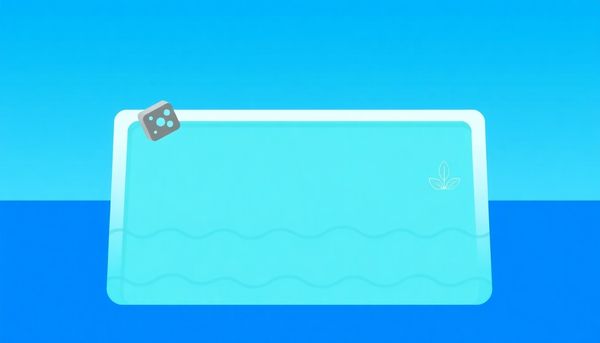
Once upon a time, my friend Jake complained endlessly about his pool maintenance woes. Every weekend, he wrestled with chemicals, his skin and eyes paying the price. Then he discovered pool ionizers, and everything changed. These devices revolutionize pool care by minimizing reliance on chlorine—cutting usage by up to 85%. Rather than dunking harmful chemicals into your backyard oasis, imagine using the natural properties of copper and silver to keep the water fresh and inviting.
Unlike the traditional chlorine-heavy methods, ionizers employ a clever bit of science. They generate copper and silver ions that target bacteria and algae, preventing growth before it becomes a problem. The copper inhibits algae, while silver ions eliminate bacteria, a method dating back to Roman times. This technology not only brings a touch of history into modern pools but also offers a gentler alternative for both swimmers and pool infrastructure.
Now, Jake's skin is spared the harshness of excessive chlorine. His pool water feels softer, and he no longer spends a fortune on chlorine. It's crucial, though, to remember that while ionizers handle the grunt work, a small amount of chlorine is still necessary to tackle resistant contaminants. However, the days of dry, itchy post-swim episodes are over. Jake's only regret? Not discovering pool ionizers sooner. His pool has transformed from a chore into a pleasure, thanks to the innovative science behind these devices.
Installing an ionizer in your pool might feel akin to inviting a little piece of science fiction into your backyard oasis. But before skepticism sets in, understanding the practicality and simplicity of this technology can turn apprehension into enthusiasm. Picture this: a device that harmonizes with your existing pool setup, operating quietly in the background to maintain crystal-clear water.
When we first installed an ionizer in our family pool, the transition was seamless. The ionizer effortlessly integrated with the existing filtration system. Water flowed through the pump and filter, and before re-entering the pool, it passed through the ionizer. This clever gadget uses low-voltage electricity to energize copper and silver electrodes, releasing ions into the water, which target bacteria and algae with precision.
Maintenance is refreshingly straightforward. Regularly checking the ionizer’s electrodes ensures they’re in good condition, while monitoring the pool’s chemical balance keeps everything running smoothly. Copper levels should hover around 0.2 to 0.4 ppm, striking the perfect balance for effective sanitization without staining. Although the ionizer reduces chlorine dependency significantly, supplementing with a reduced amount ensures comprehensive hygiene.
In essence, a pool ionizer doesn't just simplify maintenance; it transforms your entire swimming experience. Gone are the days of red eyes and irritated skin. Instead, enjoy a soft water feel, knowing that modern technology is quietly working to preserve your pool’s pristine condition. Whether you’re lounging poolside or hosting a summer splash, an ionizer is the silent partner ensuring fun and safety for everyone.
For those venturing into the world of pool ionizers, mastering chemical balance is akin to fine-tuning a musical instrument. Achieving harmony between copper, silver, and traditional chemicals ensures the water remains crystal clear and inviting. Copper and silver ions, while powerful, do not wholly replace the need for other sanitizers. This is where striking the right balance becomes crucial.
Friends often ask how to prevent that infamous 'chlorine smell' or itchy skin. The secret isn't just less chlorine—it's using chlorine wisely alongside your ionizer. Maintaining chlorine levels between 0.5 ppm and 1 ppm, rather than the typical 1-3 ppm, achieves cleanliness without overkill. This reduced chlorine usage not only makes for a more pleasant swim but also prolongs the life of your pool equipment by minimizing harsh chemical exposure.
Beyond chlorine, keeping an eye on alkalinity and pH is essential. Aim for an alkalinity range of 80-120 ppm and a pH of 7.2-7.6. These parameters ensure that copper and silver ions work optimally, preventing unintended side effects like staining or scaling. Calcium hardness should stay between 200-300 ppm to avoid deposit buildup, particularly in areas with naturally hard water. Regularly test your water and adjust as needed; this proactive approach saves headaches down the line.
Balancing your pool's chemical levels isn't just maintenance; it's creating a serene oasis, free from the annoyances of traditional pool care. Once you establish this equilibrium, a refreshing, irritation-free swim awaits each time you dive in.
Preserving the longevity of your pool equipment is a savvy way to safeguard your investment and ensure a pristine swimming experience. One often overlooked benefit of using a pool ionizer is its gentle impact on pool components. Unlike traditional chlorine-heavy systems, which can corrode metal parts and degrade plastic over time, an ionizer reduces the need for large quantities of harsh chemicals. This means your pool's pump, filter, and heater endure less wear and tear, prolonging their lifespan.
Imagine a scenario where your pool heater malfunctions in the middle of summer due to chemical corrosion. This can lead to costly repairs and downtime. By utilizing a pool ionizer, you significantly diminish the risk of such breakdowns. The ionizer's softer water conditions minimize strain on the equipment, offering a smoother operational experience season after season.
Routine maintenance remains key. Regularly check and clean the ionizer electrodes to ensure optimal performance. Over time, mineral build-up may occur, but this is easily mitigated with routine care. Additionally, keeping a close eye on the water's chemical balance—ensuring minimal chlorine use while still effective—can help avoid the pitfalls of metal oxidation.
Incorporating a pool ionizer into your maintenance routine not only enhances the longevity of your equipment but also provides a more enjoyable, less chemically-laden swimming environment for you and your family.
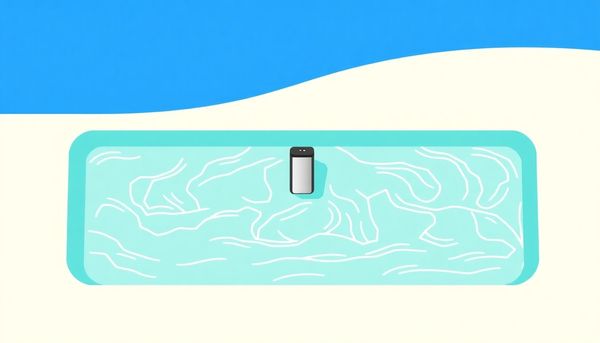
A hot summer day calls for the refreshing embrace of a pool, and the last thing anyone wants is the lingering scent of chlorine or irritated skin. Enter the world of pool ionizers, where modern science meets age-old wisdom. The ingenious device utilizes copper and silver ions to sanitize pool water effectively, reducing the need for traditional chlorine by up to 85%. This not only ensures a gentler swimming experience but also extends the life of pool equipment, sparing it from the harshness of excessive chemicals.
Understanding the mechanism of a pool ionizer is akin to unraveling a captivating secret. The device cleverly harnesses low-voltage DC current to energize copper and silver electrodes. These charged atoms, or ions, are released into the water, where they target and neutralize bacteria and algae. The ions disrupt the membranes of harmful microorganisms, effectively destroying them without the need for heavy chemical intervention.
While an ionizer might sound like a perfect solution, balancing it with a minimal amount of chlorine ensures a comprehensive defense against all potential contaminants. This harmonious blend keeps your pool water crystal clear and safe for everyone. Investing in a pool ionizer is not just a nod to convenience; it’s an embrace of smarter, more sustainable pool care. The result? A pristine swimming environment that feels like a natural oasis, free from the overpowering presence of chlorine.
Transforming your pool into a haven of clean, shimmering water without relying heavily on traditional chemicals might sound revolutionary, but that's precisely the allure of pool ionizer technology. Once, while visiting a friend who swore by this method, I dipped my toes into her pool and felt the difference immediately. The water was soft, almost silky, and my skin emerged unscathed by the dryness and irritation typical of heavily chlorinated pools.
The magic lies in the clever use of copper and silver ions. These two metals have long been recognized for their antimicrobial properties—copper to inhibit algae and silver to combat bacteria. Installing a pool ionizer is akin to having a tiny lab technician constantly monitoring and adjusting the pool's cleanliness, yet it requires minimal oversight. The device is usually integrated into the pool's circulation system, where it releases these beneficial ions into the water.
Despite its advantages, a pool ionizer isn’t a complete substitute for chlorine. It reduces the chlorine requirement significantly, lowering it to just 0.5 to 1 ppm, which is a fraction of the usual dosage. This reduction not only lessens the chemical impact on swimmers but also extends the life of pool equipment. While ionizers keep the pool inviting and fresh, remember to maintain a balanced approach by supplementing with occasional chlorine treatments to ensure a pathogen-free environment.
Unlocking the secrets of pool ionization can be like discovering a new, gentler world of pool maintenance. Instead of relying solely on chlorine to combat bacteria and algae, imagine harnessing the power of copper and silver ions—a method that traces its roots back to ancient times. These two-metal wonders work diligently to keep your pool pristine, significantly reducing chlorine's harsh effects. Think back to those times when the stinging eyes and dry skin threatened to cut your swim short; a pool ionizer might just be your answer to a more comfortable water experience.
Copper ions are particularly adept at inhibiting algae, turning your pool into a hostile environment for these unwelcome guests. Meanwhile, silver ions take on bacteria with precision, ensuring the water remains clear and inviting. The beauty of this process lies in its simplicity—the ions, once produced, roam freely through your pool, seeking out and neutralizing potential threats. It’s like having tiny, invisible lifeguards, tirelessly patrolling the water.
Moreover, employing a pool ionizer not only benefits swimmers but also extends the lifespan of your pool equipment. Reduced chlorine levels mean less wear and tear, saving you money and maintenance headaches in the long run. While you still need some chlorine to maximize hygiene, the substantial reduction in its use allows for a softer swimming experience, both for you and your pool’s machinery. Embrace the advantages of ionization, and redefine what clean, comfortable swimming truly means.
Balancing pool chemicals becomes an art when integrating a pool ionizer into your maintenance routine. A close friend of mine swore by the crystalline clarity of his pool water, achieved by minimizing chlorine usage with an ionizer. This wasn't just about cutting down on chemicals; it dramatically reduced the eye irritation and skin dryness often associated with traditional pool sanitization methods. His secret? Mastering the chemistry balance.
Start by understanding the ionizer's role. While it uses copper and silver ions to effectively combat bacteria and algae, it doesn't fully replace chlorine. For optimal results, maintain chlorine levels at a delicate 0.5 to 1 ppm. This concentration is sufficiently low to avoid the pungent chlorine smell and unpleasant skin reactions but high enough to ensure complete sanitization.
Diligence with other chemical parameters is equally crucial. The pH should hover between 7.2 and 7.6 to keep the copper and silver ions active without causing surface staining. Alkalinity levels between 80 to 120 ppm help stabilize the pH, while calcium hardness should stay within 200 to 300 ppm to prevent scaling on your pool’s surfaces and the ionizer's electrodes.
Regular testing is your ally. A reliable liquid test kit will help you monitor these levels accurately, ensuring you enjoy all the benefits of ionized water without compromising health or pool longevity. Embrace this approach, and your pool can become a sparkling oasis, free from the typical woes of chemical overuse.
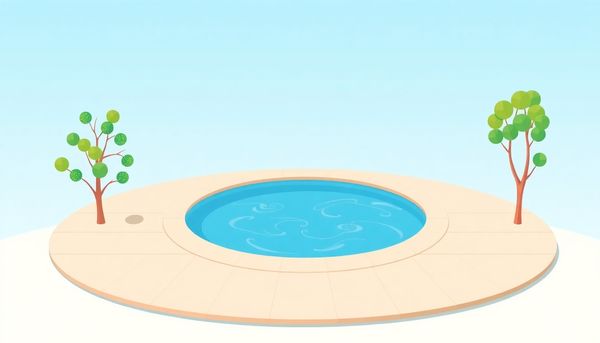
In the realm of pool maintenance, ionizers offer a modern twist to the classic challenge of keeping water clean. I remember my neighbor, Emma, who spent countless weekends wrestling with chlorine levels and algae blooms in her backyard pool. When she stumbled upon the concept of ionizers, it was a revelation. By leveraging copper and silver ions, these devices reduce the need for chlorine by a substantial margin—up to 85%, in fact—making pool care less about chemical balancing and more about relaxation.
The operation of a pool ionizer hinges on a simple yet fascinating principle: the generation of ions through a low-voltage electric current. This process, rooted in ancient wisdom, harnesses the antimicrobial properties of copper and silver. These ions are then introduced into the pool, where they combat bacteria and algae with quiet efficiency. Emma found that, beyond the reduced chlorine, her pool water felt silkier and her swimsuits lasted longer without the chemical wear and tear.
One crucial detail Emma learned the hard way is that while ionizers are powerful allies, they aren’t standalone heroes. Supplementing with minimal chlorine is still necessary to tackle certain pathogens and ensure the pool remains a safe haven for swimmers. The silver lining? The reduction in chlorine not only cuts costs but also diminishes the pungent odor and skin irritations often associated with traditional pool maintenance.
Ultimately, incorporating an ionizer into your pool system can transform the swimming experience, making it gentler on both people and equipment. For Emma, it was a game changer; her weekends evolved from chemical warfare to leisurely afternoons spent poolside, a testament to the power of blending technology with a touch of simplicity.
Transforming pool maintenance with minimal chemicals feels like a hidden gem in the world of backyard relaxation. My friend Sarah, who dreaded the sharp scent of chlorine and the itchy skin that followed her dips, discovered the magic of pool ionizers last summer. She saw an immediate difference—not just in her pool’s sparkle, but in the comfort of each swim. By harnessing the power of copper and silver ions, pool ionizers offer a gentle yet effective alternative to traditional pool sanitization methods.
These devices cleverly use low-voltage electricity to release ions that attack and neutralize harmful microorganisms and algae. Unlike the complex jargon of chemistry class, this process seamlessly integrates into your pool's existing system. Think of it as a silent guardian, working tirelessly to keep your waters pristine without the lingering tang of chlorine.
For those hesitant about mixing electricity and water, fear not. The ionizer remains outside the pool, ensuring both safety and efficacy. While it’s true that some chlorine is still needed to deal with stubborn bacteria, the reduction in chemical usage is significant. Pool owners, like Sarah, find themselves replenishing chlorine supplies far less frequently.
The choice to embrace chemical-free pool care is not just about the health of your pool and family; it’s a nod to sustainability and simplicity. By reducing chemical dependency, you're not only extending the lifespan of your pool equipment but also enjoying a swim that feels refreshingly natural.
One summer, while lounging by the pool, a friend asked about the small device attached to the pool system. "It's not just decoration," I explained, "this is a pool ionizer, and it's transforming how we maintain this oasis." Harnessing the power of mineral ions—specifically copper and silver—offers a remarkable shift from traditional pool sanitation methods. Instead of relying heavily on chlorine, which often leaves swimmers with dry skin and harsh odors, ionizers use a fascinating interplay of electricity and chemistry.
Copper and silver, metals known since ancient times for their antimicrobial properties, become the heroes of this tale. When water flows through the ionizer, a gentle electrical current activates the electrodes, releasing these ions into the pool. They patrol the water like vigilant sentinels, binding with harmful microorganisms and neutralizing them. This not only minimizes the chlorine requirement but also creates a more pleasant swimming environment.
Of course, as with any powerful tool, there's a learning curve. While ionizers significantly cut down on chlorine use, they don't eliminate the need for a secondary sanitizer. Think of the ionizer as a trusty sidekick to your chlorine hero—not replacing it, but making its job easier and more efficient. For those looking to embrace a softer, more environmentally friendly swimming experience, the ionizer stands ready to revolutionize your pool care routine.
Navigating the world of pool maintenance often feels like juggling a variety of tasks. A key element that tends to get overlooked is protecting your pool equipment from chlorine damage. Chlorine, though essential for maintaining clean water, is notorious for its corrosive nature. Over time, it can lead to significant wear and tear on pool components such as filters, pumps, and liners. This is where pool ionizers offer a unique advantage.
A pool ionizer minimizes the need for high chlorine levels by utilizing copper and silver ions to sanitize the water. These ions effectively target bacteria and algae, significantly reducing chlorine usage—by up to 85%. This decreased dependence on harsh chemicals not only benefits swimmers by reducing skin and eye irritation but also extends the life of your pool equipment. Imagine your pump and filter operating longer and more efficiently without the relentless assault of excessive chlorine.
Years ago, I switched to a pool ionizer for this very reason. Almost immediately, I noticed that my pump sounded healthier—no more groaning or struggling. Maintenance routines became less frequent, and the water felt noticeably gentler, almost as if the pool itself was thanking me for easing its burden.
While you’ll still need a small amount of chlorine to bolster the ionizer's effectiveness, the drastic reduction means less corrosion and a longer lifespan for pool components. It’s a practical, economical choice for pool owners seeking to strike a balance between effective sanitation and equipment longevity.
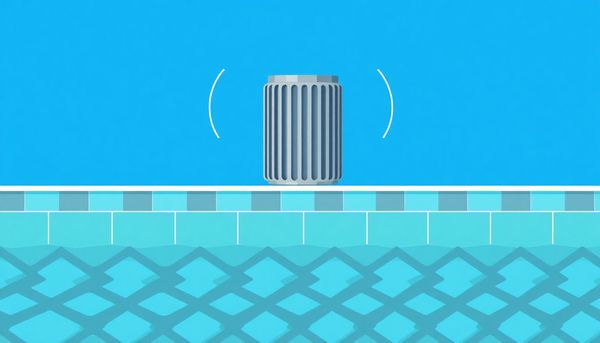
Navigating through the world of pool maintenance often feels like balancing a chemistry lab in your backyard. The relentless battle with chlorine—its harsh smell, the way it dries out your skin, and the constant monitoring—can become a weary chore. However, introducing a pool ionizer into your maintenance routine can transform this experience by significantly reducing reliance on chlorine, offering a gentler way to maintain pristine water.
Pool ionizers use copper and silver ions to purify, reducing the need for chlorine by about 85%. This isn’t just about cutting back on chemicals; it’s about enhancing the swimming experience. For someone like my friend Jenna, who always dreaded post-swim dry skin and red eyes, the switch to an ionizer was nothing short of miraculous. Her kids now swim more often, enjoying water that feels soft and almost spa-like.
Moreover, the ionizer's ability to curb algae growth with its copper content means less scrubbing and fewer maintenance headaches. Simultaneously, silver ions act as swift assassins, targeting bacteria and preventing them from setting up shop in your pool. While chlorine remains part of the equation—necessary for its strong oxidizing qualities—the reduced amount means you'll spend less time and money managing chemical levels. Plus, with fewer chloramines formed, the familiar chlorine odor becomes a thing of the past.
By embracing a pool ionizer, not only do you protect your skin and hair, but you also extend the lifespan of your pool equipment. Chlorine can be corrosive over time, so reducing its levels helps maintain everything from pool liners to pumps. In conclusion, a pool ionizer doesn't just offer an alternative; it provides a better, more enjoyable pool experience for everyone involved.
Thinking about making the switch to a pool ionizer? It’s like inviting a team of tiny superheroes into your swimming pool. These devices, employing the natural cleaning prowess of copper and silver ions, offer a gentler alternative to the traditional chemical-heavy methods. They can reduce the chlorine you need by up to 85%, a game-changer for those with sensitive skin or a dislike for chlorine's harsh effects.
Once you’ve decided to implement a pool ionizer, installation becomes straightforward. The ionizer is attached to your pool’s pump system, working in harmony with the water's flow. This setup ensures that positively charged ions are delivered efficiently into your pool, where they seek out and neutralize harmful bacteria and algae. It's a seamless process that requires minimal ongoing maintenance—just a periodic check to ensure everything's running smoothly.
Personal experience shows that the shift to ionized water can be a treat. Friends who’ve made the transition often talk about how refreshing it feels. There’s no more burning eyes or chlorine smell clinging to the skin. It’s a softer swim, both in sensation and in chemical load. Of course, this doesn’t mean you can ditch chlorine entirely; a small amount is still necessary to maintain complete sanitization. But, the reduced levels mean fewer trips to the pool supply store and more time enjoying your backyard oasis.

Imagine the relief of escaping those constant worries about your pool equipment breaking down. Chlorine, while a pool's traditional guardian against germs, can be quite the bully to your gear, causing it to wear prematurely. With a pool ionizer, you can give your equipment a well-deserved break. The gentle touch of ionizer-treated water means fewer of those harsh interactions that lead to corrosion and damage.
Think back to the family BBQ when everyone decided to take a plunge, and you noticed your pool filter struggling to keep up. Over time, repeated exposure to harsh chemicals accelerates the decline of equipment like filters and pumps. On the other hand, the reduced chlorine usage thanks to ionizers means less stress on these components. Your pool's filter and pump will not only last longer but will also operate more efficiently, saving you the headache of frequent replacements.
Moreover, the financial perks are undeniable. Less wear and tear translate to fewer maintenance calls and part replacements. By extending the life of your pool equipment, an ionizer can save you a pretty penny in the long run. So, while you enjoy softer water and a more eco-friendly pool environment, remember that your equipment is thriving too, all thanks to the magic of those tiny ions doing their job.
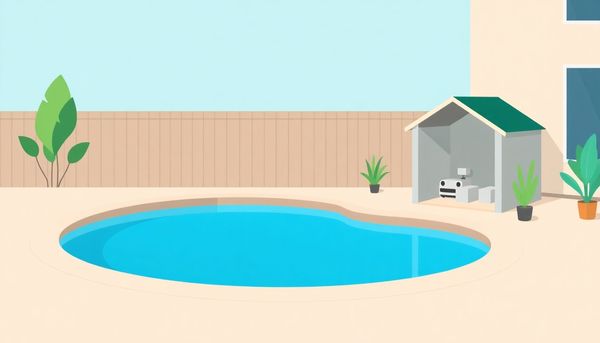
This article provided insights into maintaining your pool. Start your pool care journey today!
Want to become a pool maintenance expert? Our free Pool School course covers everything you need to know about pool care. From basic maintenance to advanced troubleshooting, you'll learn how to:
Join over 10,000 pool owners who have already transformed their pool care routine. Get started with our free Pool School course today!